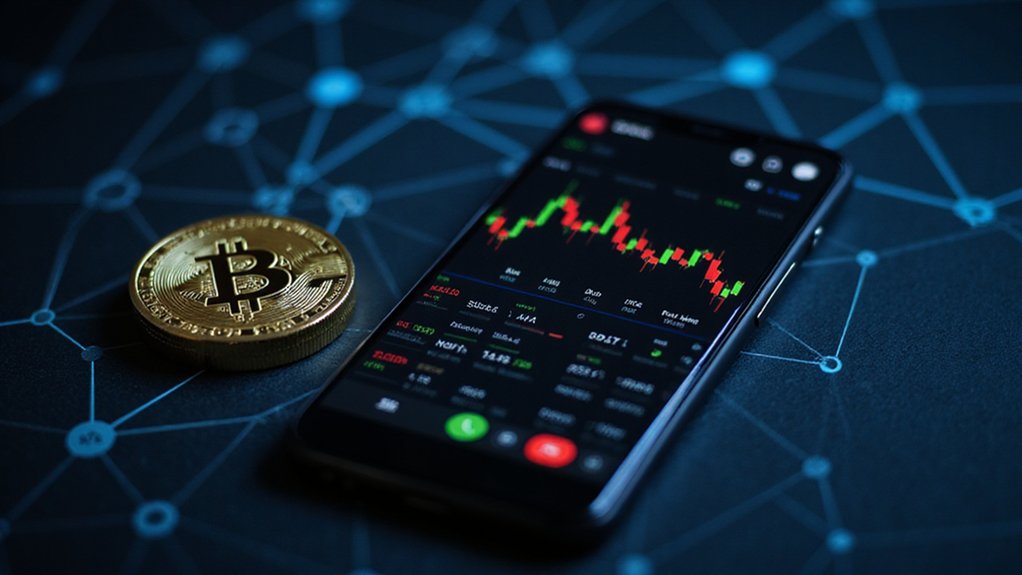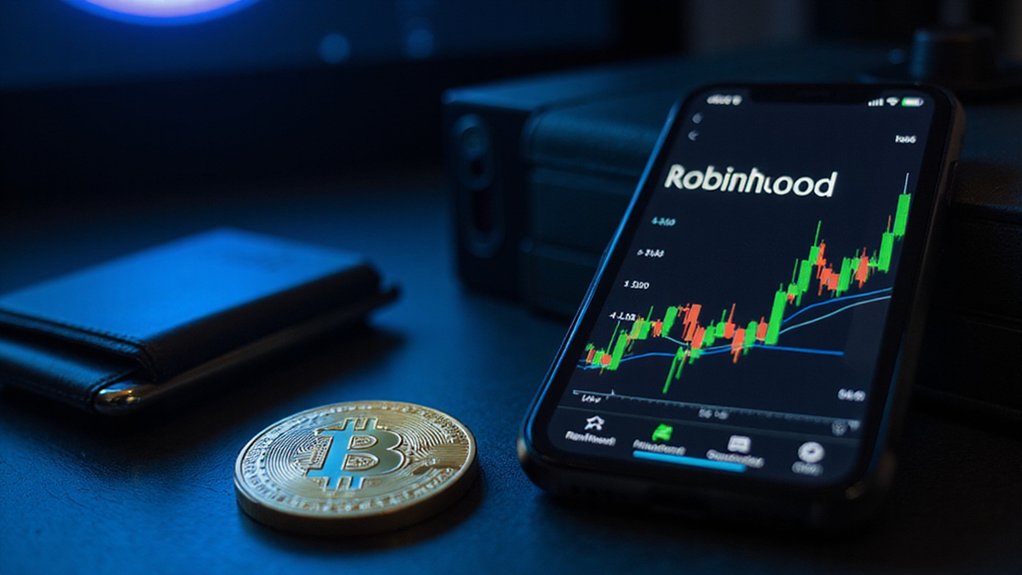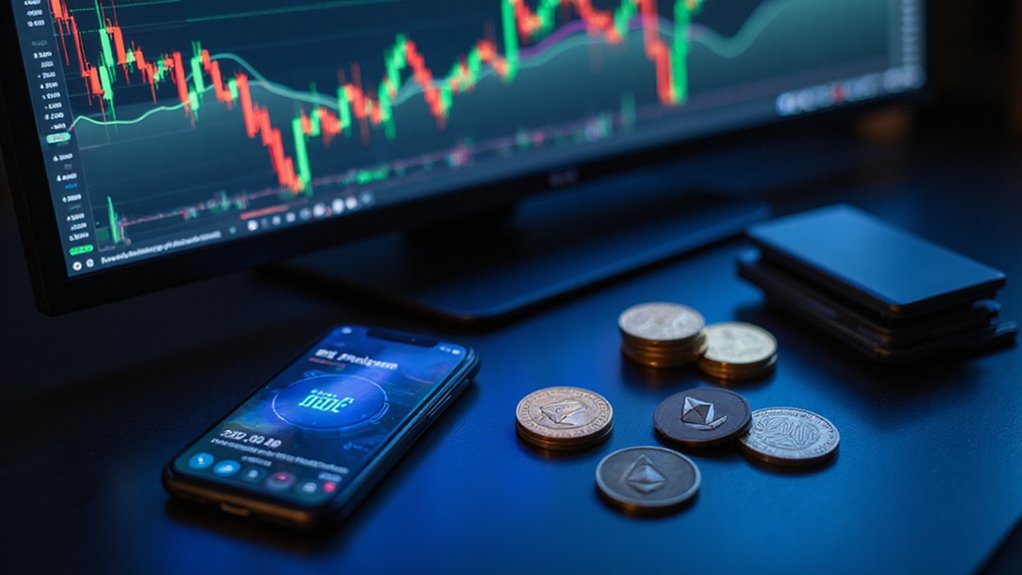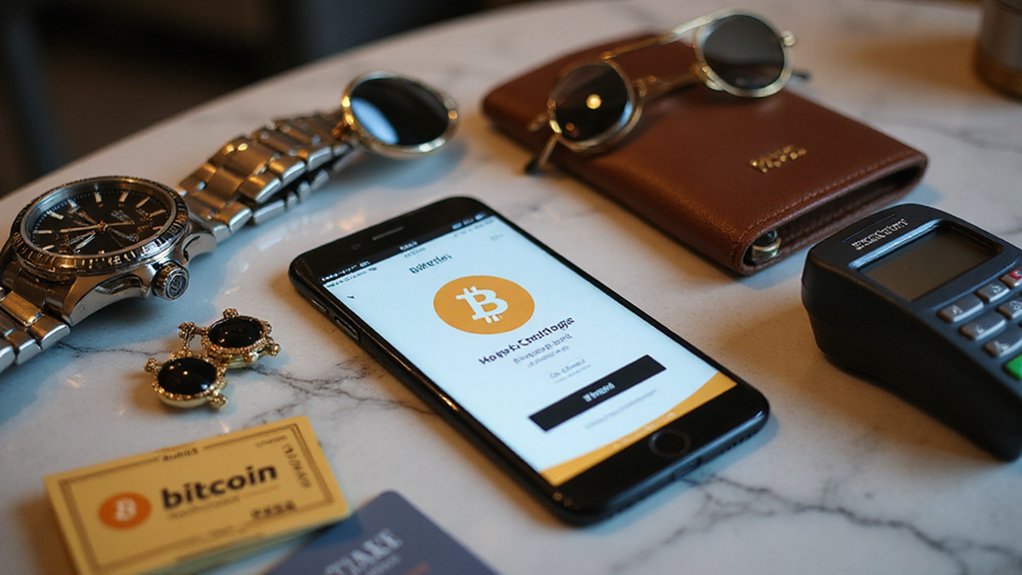Robinhood democratizes cryptocurrency trading through its deceptively simple yet robust platform. The app offers 24/7 access to crypto markets with automatic price protection mechanisms—converting market orders to limit orders with collars preventing excessive price slippage. Users can purchase fractional coins (mercifully eliminating the need for five-figure investments in Bitcoin), transfer assets across networks, and manage their digital holdings within one ecosystem. The platform’s accessibility masks sophisticated guardrails working tirelessly behind that sleek interface.

Why has Robinhood emerged as a formidable contender in the cryptocurrency trading arena?
Its 24/7 trading availability (with nominal exceptions for maintenance) coupled with an intuitive interface provides accessibility that traditional brokerages have historically struggled to match.
The platform’s approach to cryptocurrency—treating these digital assets with the same streamlined methodology applied to stocks—has democratized an investment class once reserved for the technically adept.
Robinhood’s cryptocurrency trading mechanism operates through a distinctive order system that prioritizes price protection.
Market orders undergo an automatic conversion to limit orders, establishing price collars that prevent executions at unexpectedly disadvantageous rates—market buys cannot exceed a 1% markup, while market sells cannot plummet beyond a 5% reduction.
This safeguard, while potentially frustrating during volatile periods, ultimately serves as a prophylactic measure against the notorious cryptocurrency price swings that have eviscerated unwary traders.
The platform’s limit order functionality provides traders with precise control over transaction parameters.
Limit buy orders execute only when the asking price meets or drops below the established threshold, while limit sell orders trigger when bid prices reach or surpass the predetermined level.
Orders that fail to meet these conditions within two minutes face automatic cancellation—a peculiar timeframe that seems arbitrarily brief in markets characterized by their unpredictability.
Fractional trading represents another cornerstone of Robinhood’s cryptocurrency approach, enabling investments in partial units rather than requiring whole-coin purchases.
This feature—particularly valuable given Bitcoin’s five-figure price tag—allows for more granular portfolio construction and dollar-cost averaging strategies that might otherwise be prohibitively expensive.
Unlike dedicated platforms that support advanced technical analysis techniques, Robinhood offers a more streamlined approach focused on accessibility rather than sophisticated trading strategies.
Beyond trading, Robinhood has expanded its cryptocurrency ecosystem to include transfer capabilities across multiple networks including Ethereum, Bitcoin, and Solana.
The integration of wallet functionality and swapping mechanisms positions the platform as more than merely a trading venue, but rather as a thorough cryptocurrency management system—albeit one still lacking certain advanced features that dedicated crypto exchanges routinely offer.
Frequently Asked Questions
Can I Transfer Crypto From Robinhood to an External Wallet?
Yes, users can transfer cryptocurrency from Robinhood to external self-custody wallets, though this functionality comes with several prerequisites.
Transfers require identity verification, two-factor authentication, and wallet address verification.
While US customers enjoy relatively straightforward access to this feature, EU users face more restrictions under the Transfer of Funds Regulation.
Network fees—those inescapable friction costs of blockchain transactions—apply to all transfers, and withdrawal limits vary based on verification level and transaction history.
What Are Robinhood’s Crypto Trading Fees Compared to Competitors?
Robinhood employs a spread-based pricing model for crypto—embedding costs in the buy/sell differential rather than charging explicit fees like competitors.
While touting “commission-free” trading and claiming up to 10.25% lower costs than Coinbase (which averages ~1.87% per $200 BTC purchase), the lack of transparent fee schedules makes direct comparisons challenging.
Unlike Kraken and Crypto.com’s fixed withdrawal fees (0.004770 ETH and 0.004865 ETH respectively), Robinhood charges no transfer fees, though external network fees still apply.
Which Cryptocurrencies Are Available to Trade on Robinhood?
Robinhood’s cryptocurrency selection remains deliberately unspecified in their documentation, though the platform operates nationwide with variable availability.
Their roster expands strategically based on regulatory approval—a labyrinthine process that creates a patchwork of accessibility across states.
New York residents face particularly stringent limitations (courtesy of NYDFS requirements).
The platform supports both major cryptocurrencies and select altcoins, though specifics shift as Robinhood navigates the regulatory minefield that characterizes America’s fragmented crypto oversight landscape.
Is My Cryptocurrency FDIC or SIPC Insured on Robinhood?
Cryptocurrency on Robinhood exists in a curious regulatory limbo—neither FDIC nor SIPC insured.
While Robinhood Crypto carries crime insurance against theft (including cybersecurity breaches), this coverage extends to only a portion of crypto assets.
The stark reality? Market volatility losses remain entirely unprotected.
Cash in Robinhood accounts enjoys FDIC protection through banking partnerships, but the moment one converts those dollars to digital assets, that financial safety net vanishes rather unceremoniously.
Does Robinhood Offer Staking or Interest on Cryptocurrency Holdings?
Yes, Robinhood offers cryptocurrency staking options, specifically for Ethereum and Solana in Europe. Users can earn between 50-100% of protocol staking rates with a remarkably straightforward process.
Currently, they’re running a promotional 100% match on staking earnings up to €10,000 for both currencies—a rather generous incentive in today’s competitive crypto landscape.
While staking involves inherent risks (as with anything in the volatile crypto space), Robinhood has simplified the typically convoluted process for mass accessibility.









